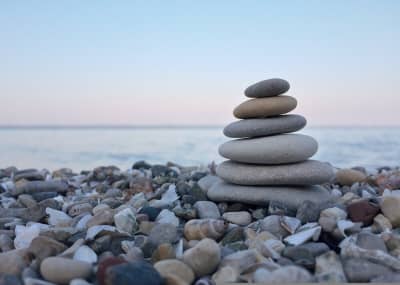“Strategy, strategy?” muses the Major General in The Pirates of Penzance. He has a “smattering of elemental strategy,” you see, and that is what makes him “the very model of a modern Major General.”
Last week, someone commented on my blog “Let it Be,” that they had learned to recognise their Prodromes to a bipolar episode and so to take action to avoid same.
Sadly, I do not recognise my prodromes, and I should. Looking back to May, cleaning my in-law’s house prior to the sale, I was full of energy. I was enthusiastic, motivated, inspired and determined. No matter how many times I was told that reasonably clean was clean enough, I was utterly committed to every surface, high, low, accessible and visible or not, being squeaky clean. Our buyers commented that the house gleamed and sent us a thank you card saying they could feel the love we had put into it.
Yes, there was love. There was also pride, too much pride.
Looking back, I can see that was the manic phase before the drop. At the time, I didn’t recognise it. Even when my best friend gently pointed it out, I couldn’t see it.
Even if I had seen it, what could I have done? If I had called in a cleaning agency and sat, twiddling my thumbs in an agony of frustration – because they were not doing the job properly – would the drop have been any less? If I rest now, instead of doing what I can, will this episode be shorter?
Whether it is depression or bipolar, having a strategy makes sense. But how do we find a strategy that works for us?
I will admit to not having enough data.
Yes, I have my Moodscope scores for eleven years but I don’t have useful annotations in the comments box. I don’t have documented strategies and the results of those. And there doesn’t seem to be that much published research out there.
Does limiting activity during a manic episode reduce the severity and length of the following depression? If so, how can one ensure the mania is recognised and the strategy adhered to?
Does resting during a depressive period reduce the severity and length of the episode?
Does practising self-care reduce the number of episodes?
What about talking therapy?
What are our triggers, if any?
Does increasing one’s support circle help? And how?
One thing I have noticed. On Sunday I felt quite good, so I visited my father-in-law in the care home, cooked, did some business admin, washed and dried three loads of laundry – and was utterly exhausted on Monday. Monday was a sofa-day. I didn’t have the energy to read or even to watch TV. Monday was a staring into space day.
One experiment: one result. Record it in the diary.
Enough experiments, enough results and we might come up with a strategy – or at least a plan.
What strategies do you have? Do they help? Please share in the comments because we can all help each other.
Mary
A Moodscope member.


Comments
You need to be Logged In and a Moodscope Subscriber to Comment and Read Comments